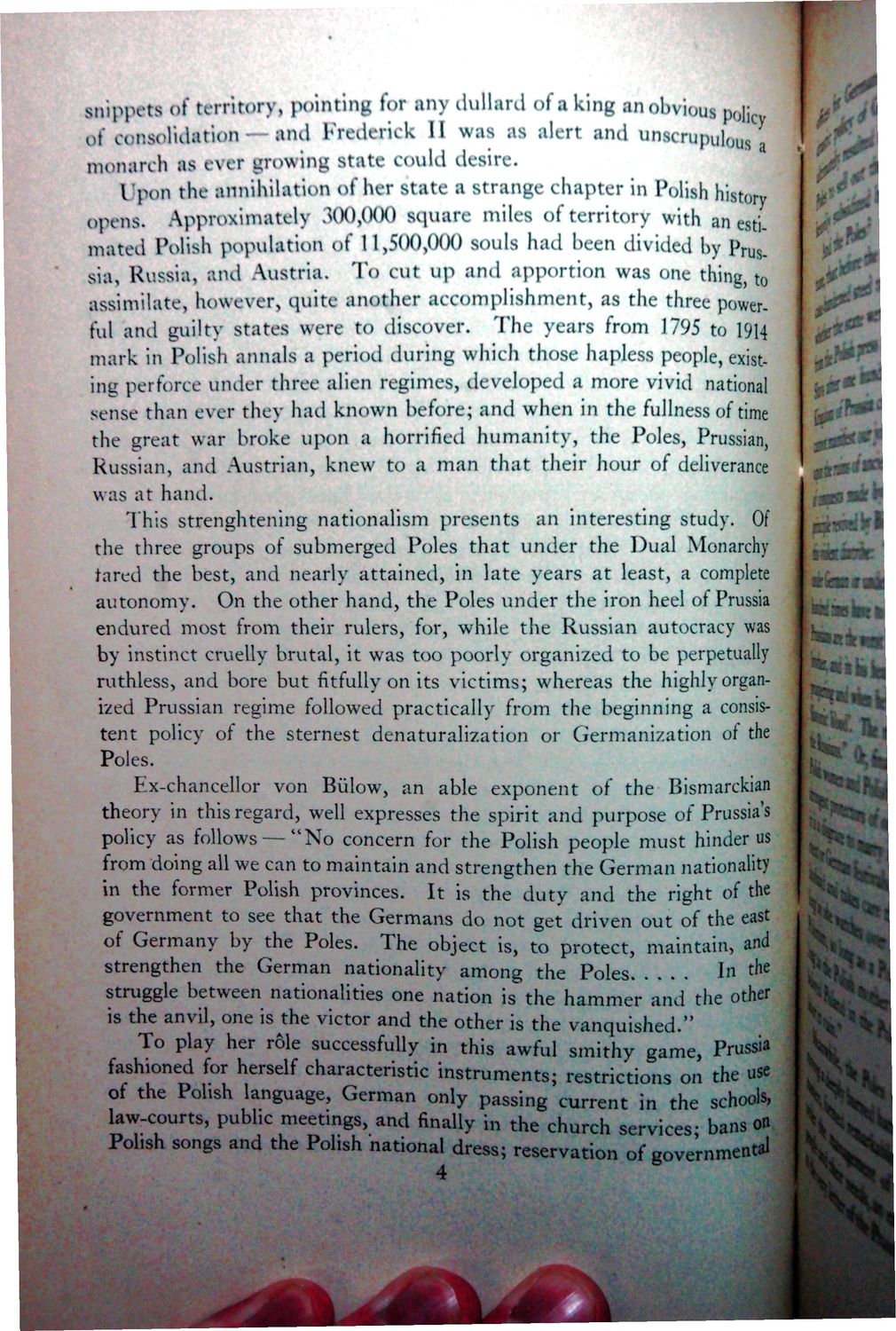| |
| |
Caption: War Publications - WWI Compilation 1923 - Article 24
This is a reduced-resolution page image for fast online browsing.

EXTRACTED TEXT FROM PAGE:
snippets of territory, pointing for any dullard of a king an obvious p0|icy of consolidation — and Frederick II was as alert and unscrupulous^ monarch as e\cr growing state could desire. I Jpon the annihilation of her state a strange chapter in Polish history opens. Approximately 300,000 square miles of territory with an estimated Polish population of 1 1,500,000 souls had been divided by Prussia, Russia, and Austria. T o cut up and apportion was one thing, to assimilate, however, quite another accomplishment, as the three power, ful and guilty states were to discover. The years from 1795 to 1914 mark in Polish annals a period during which those hapless people, existing perforce under three alien regimes, developed a more vivid national sense than ever they had known before; and when in the fullness of time the great war broke upon a horrified humanity, the Poles, Prussian, Russian, and Austrian, knew to a man that their hour of deliverance was at hand. This strenghtening nationalism presents an interesting study. Of the three groups of submerged Poles that under the Dual Monarchy tared the best, and nearly attained, in late years at least, a complete autonomy. On the other hand, the Poles under the iron heel of Prussia endured most from their rulers, for, while the Russian autocracy was by instinct cruelly brutal, it was too poorly organized to be perpetually ruthless, and bore but fitfully on its victims; whereas the highly organized Prussian regime followed practically from the beginning a consistent policy of the sternest denaturalization or Germanization of the Poles. Ex-chancellor von Bulow, an able exponent of the Bismarckian theory in this regard, well expresses the spirit and purpose of Prussia's policy as follows — " N o concern for the Polish people must hinder us from doing all we can to maintain and strengthen the German nationality in the former Polish provinces. It is the duty and the right of the government to see that the Germans do not get driven out of the east of Germany by the Poles. The object is, to protect, maintain, and strengthen the German nationality among the Poles In ^ struggle between nationalities one nation is the hammer and the other is the anvil, one is the victor and the other is the vanquished." To play her role successfully in this awful smithy game, Prussia fashioned for herself characteristic instruments; restrictions on the use language law-courts, public meetings, and finally m the church services- bans on dress 4 •> > * 4 i- & # > ft* V * * : : t -z • rtaBfflfc '•* Mi ! < *\ S • '•, > « \ k K k
| |